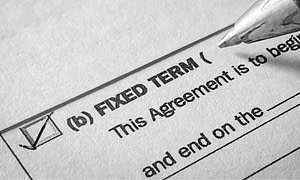A probation period is a specific period of time during which an employer checks the performance and match of an employee for a job. This period usually occurs at the start of an employment relationship and serves several intents.
Assessment of fit
As stated by the Fair Work Ombudsman, probation periods give employers the opportunity to check that their new employee is suitable for the role they've been hired to do. It allows employers to assess whether the employee's skills, work ethic, and behaviour align with the firm's needs and values.
Performance evaluation
During the probationary period, employers closely monitor the employee's performance, including their ability to meet job needs, work well with colleagues, and adapt to the company's culture. This check helps see if the employee meets the company's performance standards.
Training & development
Employers may use the probationary period to provide extra training and support to help the new employee succeed in their role. This could include on-the-job training, mentoring, or coaching.
Flexibility
Both the employer and the employee have some flexibility during the probation period. If either party determines that the fit isn't right, they can usually end the employment relationship with relatively little notice or legal consequences.
Clear expectations
The probation period often comes with clear ideals and goals that the employee should meet. This provides a set outline to assess from.
Legal & contractual implications
The terms and conditions of a probationary period can vary by jurisdiction, company policy, and the employment contract. Some jurisdictions may have specific rules for probation periods, such as maximum length or notice needs.
Transition to full employment
If the employee's performance meets or exceeds what the employer expects of them during the probation period, they may convert to full employment status, with all the rights and benefits that come with it.
It's important to note that probation periods can vary in length, with common lengths ranging from one to six months. The employment contract or company policy should outline the specific terms and conditions of the probation period to ensure both the employer and employee understand the needs and consequences.
Additionally, probationary periods are not a one size fits all, and their use can depend on the industry, firm, and local employment laws.
For more information regarding this topic, click the button below to read our article on whether probation periods can be extended.





















